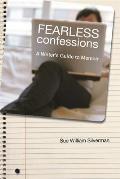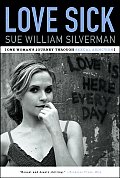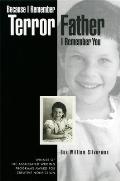
When St. Augustine penned his
Confessions, he did so to put his past behind him. For many of us writing today, however, confession is more of a way to understand, embrace, and synthesize the past.
While the genre never went totally underground between, well, 398 A.D. and the early 1990s, memoir was more a form reserved for the famous — and famous men, at that. When I studied for my MFA degree back in the late 1980s, for example, students had two choices: to write poetry or fiction.
Why the absence of memoir back then? Why the explosion of it now?
The answer, I think, is cultural. Pre-Oprah, after all, children were to be seen and not heard, while women and those considered "other" were, generally, to be neither seen nor heard — at least not in their true light. The tacit message? Don't tell family secrets.
 Then, ironically, even during the freedom of my generation's hippie era, the idea of the individual self was also abnegated — to the commonality of shared causes and experience. Individual voices of hippies, mine included, were lost to cacophonous chanting: "make peace not war." Our communal mantra was "sex, drugs, and rock 'n' roll."
Then, ironically, even during the freedom of my generation's hippie era, the idea of the individual self was also abnegated — to the commonality of shared causes and experience. Individual voices of hippies, mine included, were lost to cacophonous chanting: "make peace not war." Our communal mantra was "sex, drugs, and rock 'n' roll."
But now, as Baby Boomers grow older and rockers mellow into crooners, we finally have the luxury — maybe even the imperative — to look back, gaze inward, take stock, and, yes, confess.
And that ground-breaking generation — indeed all who came of age after World War II — has discovered that no subject is irrelevant or taboo. Memoir isn't just for the famous anymore, either.
Memoirists confess, for example, to addictions, infidelities, religious conversions, child abuse, confusion about sexual identity, or even heavy-metal hearing loss! We confess alienation, illness, depression. Finally, we tell family secrets. We write memoir to understand our lives and then share what we learn with others. We still, perhaps, want to change the world, only no marches or demonstrations this time around.
Maybe that's why, generally speaking, some critics, and others, who still resent or misunderstand rebels (regardless of the current length of our hair) have had a hard time accepting this new way writers define their relationships to their own lives.
For example, while promoting my second memoir, Love Sick: One Woman's Journey Through Sexual Addiction, I was asked by a Denver shock jock, "Where's the kinkiest place you've ever had sex?"
 While at the time I was humiliated, I'm now almost grateful to him. My own latent rebellion against those representing the status quo helped me sharpen my thinking about confession — about the need to be fearless when discovering the individual voice — which ultimately resulted in Fearless Confessions: A Writer's Guide to Memoir.
While at the time I was humiliated, I'm now almost grateful to him. My own latent rebellion against those representing the status quo helped me sharpen my thinking about confession — about the need to be fearless when discovering the individual voice — which ultimately resulted in Fearless Confessions: A Writer's Guide to Memoir.
Writing our stories, confessing to either the savory or the sordid, is a way to come to terms with our pasts, to make individual statements of what it means to be fully human. And by reflecting upon ourselves, we also, more communally, conjure the stories of others. Confessional writing, ironically, isn't just about "me." It helps others better understand their own lives, too.
Whether we grew up listening to rock, grunge, or hip-hop, we all discover that, through language, we transform experience into meaning. We engage in this endeavor with the same wholeheartedness with which we rebelled or sinned or simply persevered. That's why memoir, as a genre, has such energy. We are not going gentle. We are making the same great noise in retrospect as we did the first time around.